Digital ecosystem – the driving force of digital transformation
In his opening speech at the seminar, Mr. Do Viet Hung - Member of the Policy Committee of the Vietnam Banks Association emphasized that in the context of the Government promoting the national digital transformation program, the banking industry is identified as one of the leading sectors, playing the role of "financial infrastructure" for the digital economy and online public services. Therefore, building and accelerating the development of a digital banking ecosystem is not only an internal need of each credit institution, but also an urgent requirement to better serve people and businesses, promote economic growth, expand comprehensive finance and improve the effectiveness of state management.
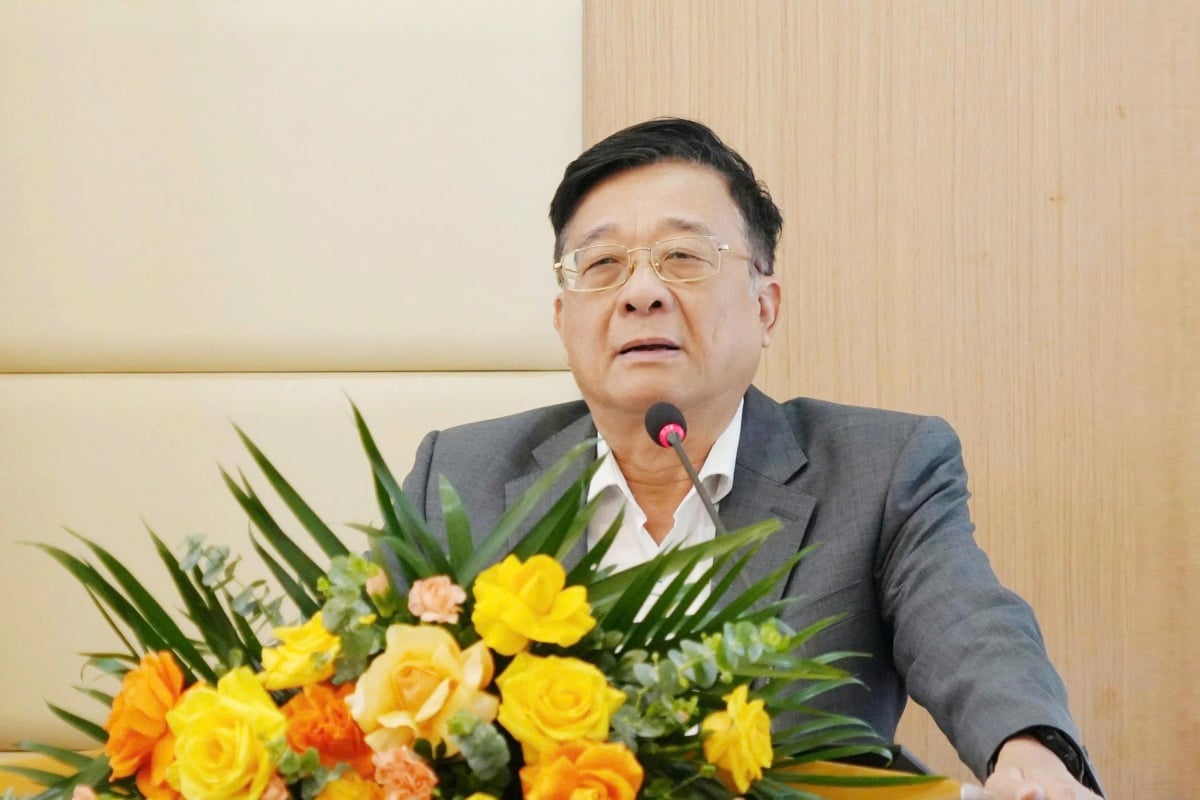 |
| Dr. Nguyen Quoc Hung - Vice Chairman and General Secretary of Vietnam Banks Association spoke at the seminar |
Sharing the same view, according to Dr. Nguyen Quoc Hung - Vice Chairman and General Secretary of the Vietnam Banking Association, digital banking transformation is moving to a "better" stage instead of just "faster". In the context of increasingly strict new regulations on personal data protection and electronic transactions, the development of a digital banking ecosystem does not stop at internal business activities. This ecosystem needs to be developed in a regionally connected direction, both to facilitate customers and to contribute to preventing and combating cross-border fraud and scams - an issue that is receiving strong attention at ASEAN forums.
In Vietnam, the banking system is considered one of the countries with the fastest digital transformation speed in the region with many impressive results, meeting the increasing needs of the people. However, Dr. Nguyen Quoc Hung also pointed out some difficulties and problems in technical connection, standardization of international payments...
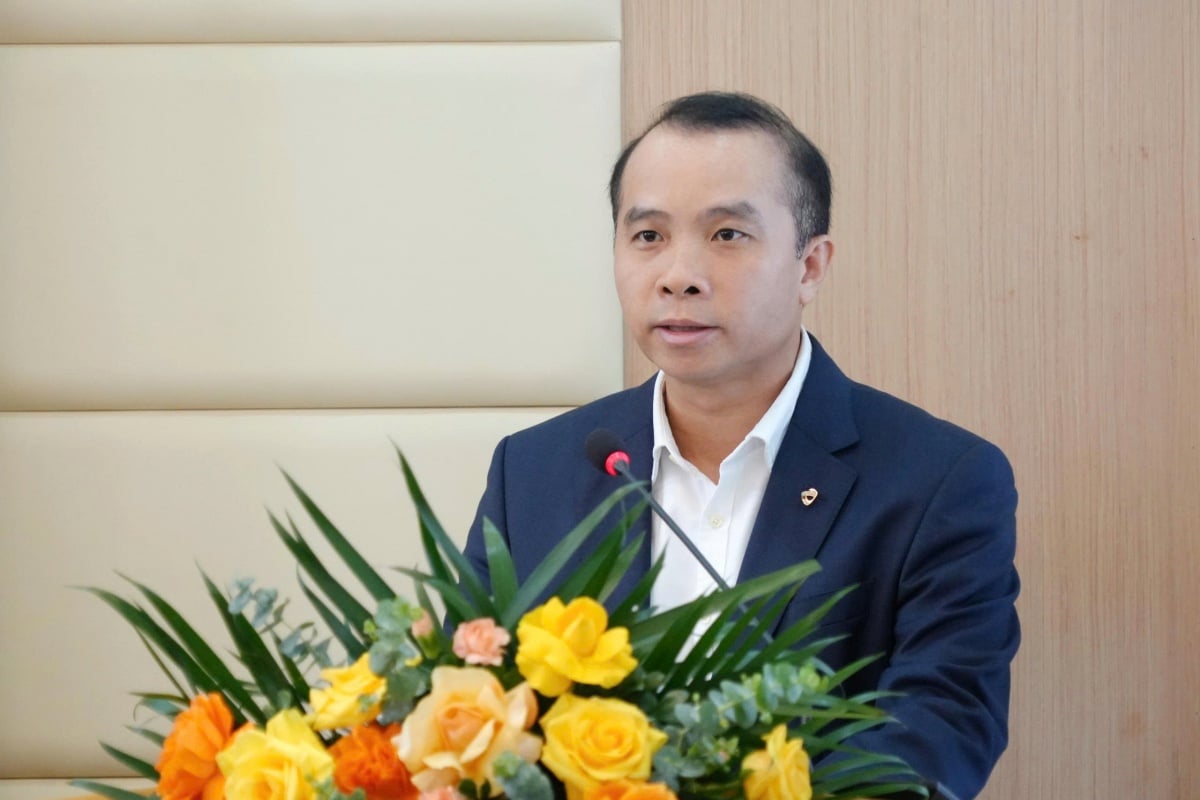 |
| Mr. Do Viet Hung - Member of the Policy Committee of Vietnam Banks Association shared at the seminar |
“There are cases where the technical infrastructure is ready but problems arise during implementation. Although QR code payment channels with Laos and Cambodia have been improved thanks to active coordination, the issue of costs and benefit-sharing mechanisms when expanding to the international market still needs to be thoroughly discussed,” the leader of the Banking Association cited and emphasized that digital transformation is not a game for individual units, but requires a spirit of cooperation, close connection, and harmonization of interests to build a common, synchronous, safe and effective ecosystem.
According to Dr. Hung, the new legal corridor on personal data protection, electronic transactions, digital identification and sharing of national data infrastructure is creating conditions for building a new generation of digital banking architecture - more open but safer. To do so, each bank must shift from single system thinking to ecosystem thinking, from internal optimization to interconnection optimization, from infrastructure competition to service competition.
 |
| Discussion scene |
Sharing at the seminar, Ms. Vu Thi Thuy Minh - representative of Vietcombank said that the bank is accelerating the process of expanding the digital ecosystem, aiming to turn digital banking into a seamless touchpoint in all financial activities of people and businesses. The implementation of opening accounts for organizations through VNeID authentication is a typical example, contributing to the synchronization and transparency of national population data, improving the safety level of digital transactions, and opening up opportunities for deep connection with service groups to diversify payment utilities.
Vietcombank's digital transformation strategy is designed around four core customer journeys: daily payment transactions, consumer credit, savings - investment and personal insurance. The bank not only brings products to digital channels, but also redesigns the entire experience journey. Customers can open accounts via VNeID, sign documents with digital signatures, apply for online consumer loans, receive automatic consultation, and receive after-sales care on the same platform. Along with that, Vietcombank focuses on developing an omni-channel model, upgrading infrastructure to the cloud to increase flexibility and ensure performance in the context of rapidly increasing digital transactions. The bank also promotes automation in internal operations. Currently, the bank has automated about 200 business processes, helping to optimize costs and speed up processing. AI technology and big data analysis are also being applied deeply in business problems such as cross-selling, finding potential customers and supporting decision making. Vietcombank is also investing in AI Ops/MLOps platforms to ensure that AI models operate stably, safely and are easily scalable in the future.
Similarly, at BIDV , according to Mr. Hoang Minh Tu, BIDV's digital ecosystem is built on four pillars: Digital Government, Digital Society, Digital Citizens and Digital Enterprises. BIDV is one of the first banks to deploy payments on the National Public Service Portal with more than 100,000 transactions per month; connecting population databases, implementing Project 06, paying social security and integrating services via VNeID.
About 92% of BIDV's transactions are currently conducted on digital channels. SmartBanking has more than 22 million users, BIDV Home connects nearly 200 partners, BIDV Direct provides comprehensive financial services for businesses.
Need for legal and data synchronization
Sharing about retail credit in the digital environment, Mr. Hoang Minh Tu said that the bank has deployed eKYC, automatic credit scoring and online lending according to Circular 06. However, the digitalization process has only been partially automated due to limitations in cross-industry data. According to him, data for product offerings is still mainly exploited from internal sources, lacking a mechanism to connect with third-party data due to the lack of specific instructions. Regarding electronic identification, the bank has only stopped at authenticating information on Citizen Identification Cards, and has not yet connected data sources from telecommunications, insurance, taxes, etc.
In addition, the common connection infrastructure has not been formed; banks still connect individually with each partner, lacking a centralized management system for customer groups that need to be controlled such as blacklists, customers with restricted access or officers who violate ethics. For verification of fraud, counterfeiting and online scams, the SIMO system already exists but mainly supports the payment sector, not meeting the needs of credit granting activities, so it is necessary to promote deeper connectivity.
A major problem lies in the credit appraisal, approval and disbursement accounting stages. Although an automatic appraisal and approval system has been built, there is a lack of data to evaluate and understand customers. Currently, banks mainly exploit internal data and data from CIC, while data on income, insurance, health, taxes, etc. are still not connected, and there are no specific instructions for exploitation. This is a necessary foundation to build a more effective customer evaluation model.
Regarding digital signature infrastructure, scoring, and customer ranking, the system is still lacking in synchronization. The market currently has more than 10 CA providers with different processes and platforms, without common standards; the newly formed VNeID hub has not yet covered all providers and there are no regulations establishing VNeID as a unified digital signature platform. In addition, the maximum online loan limit of 100 million VND is also a barrier, although the State Bank is drafting amendments but has not yet issued them.
Another difficulty is related to operating costs. With small loans via electronic means, banks have to pay for VNeID authentication, digital signatures...
From a practical perspective, Dr. Nguyen Quoc Hung commented that digital transformation is not a game for individual units, but requires a spirit of cooperation, close connection, and harmonization of interests to build a common, synchronous, safe, and effective ecosystem.
To remove bottlenecks and accelerate the development of the digital banking ecosystem, Dr. Nguyen Quoc Hung proposed 5 key issues that need to be discussed and acted upon immediately.
One is standardization: Building a shared digital platform to reduce connection costs and improve customer experience.
Second, data mechanism: There is a mechanism for data sharing and privacy protection in accordance with the Law on Personal Data Protection.
Third, network security: Ensuring safety and security is a prerequisite in every step of implementation.
Fourth, financial mechanism: Building a transparent fee framework and a reasonable benefit sharing mechanism when implementing cross-border services.
Fifth, international cooperation: Strengthen inter-sectoral cooperation, especially projects on digitalizing trade finance and fraud prevention with close coordination between the State Bank of Vietnam, commercial banks and the Banking Association.
Mr. Hung believes that unifying viewpoints and sharing benefits reasonably will be the key for Vietnamese banks to expand their services internationally and improve the competitiveness of the entire economy.
Source: https://thoibaonganhang.vn/he-sinh-thai-ngan-hang-so-khong-con-la-lua-chon-ma-la-yeu-cau-tat-yeu-cua-nen-kinh-te-so-174280.html




![[Photo] Prime Minister Pham Minh Chinh chairs the 15th meeting of the Central Emulation and Reward Council](/_next/image?url=https%3A%2F%2Fvphoto.vietnam.vn%2Fthumb%2F1200x675%2Fvietnam%2Fresource%2FIMAGE%2F2025%2F11%2F27%2F1764245150205_dsc-1922-jpg.webp&w=3840&q=75)

![[Photo] President Luong Cuong attends the 50th Anniversary of Laos National Day](/_next/image?url=https%3A%2F%2Fvphoto.vietnam.vn%2Fthumb%2F1200x675%2Fvietnam%2Fresource%2FIMAGE%2F2025%2F11%2F27%2F1764225638930_ndo_br_1-jpg.webp&w=3840&q=75)













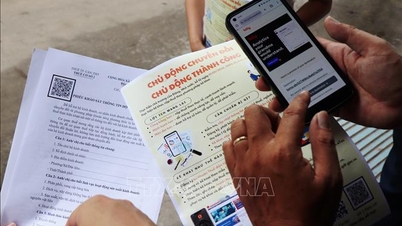
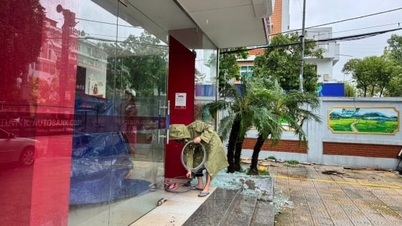


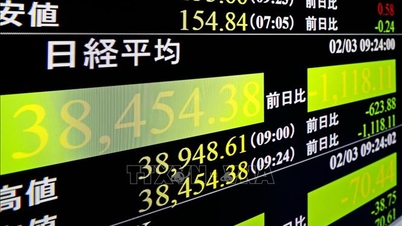
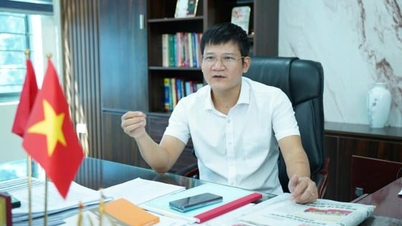






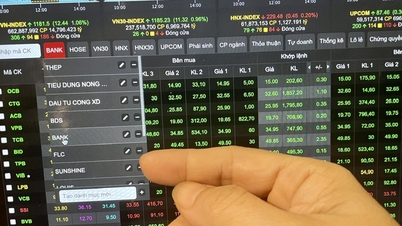
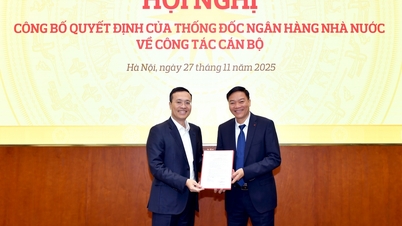

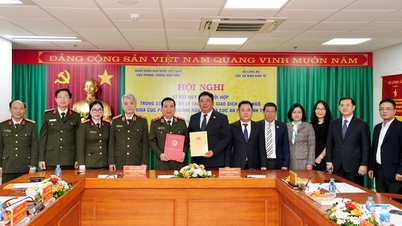







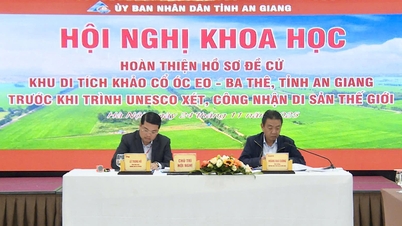











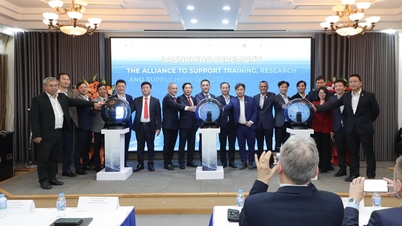



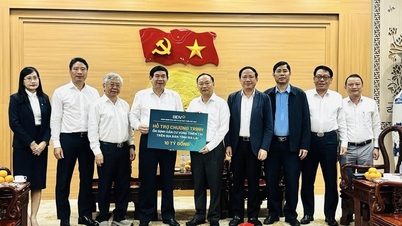

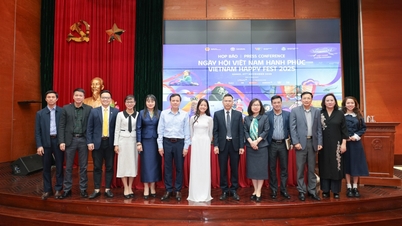






















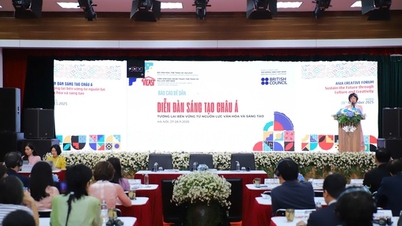
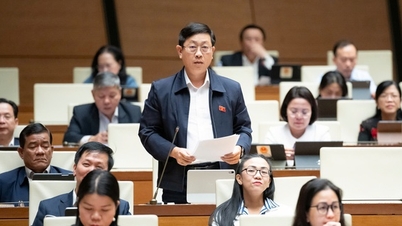
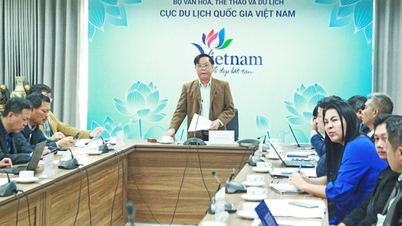
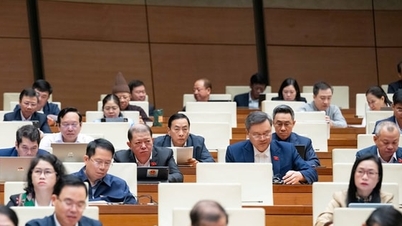
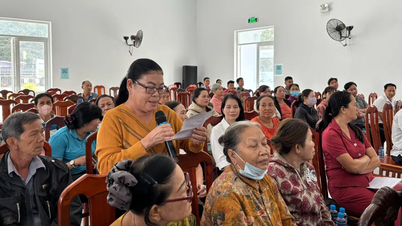


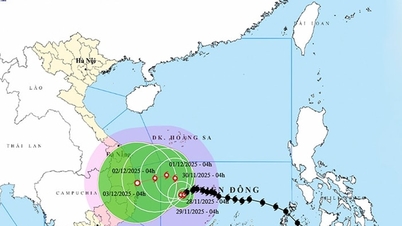
















Comment (0)